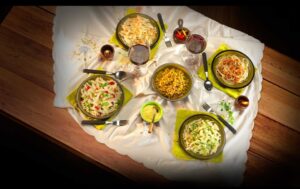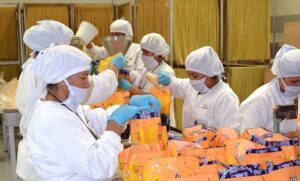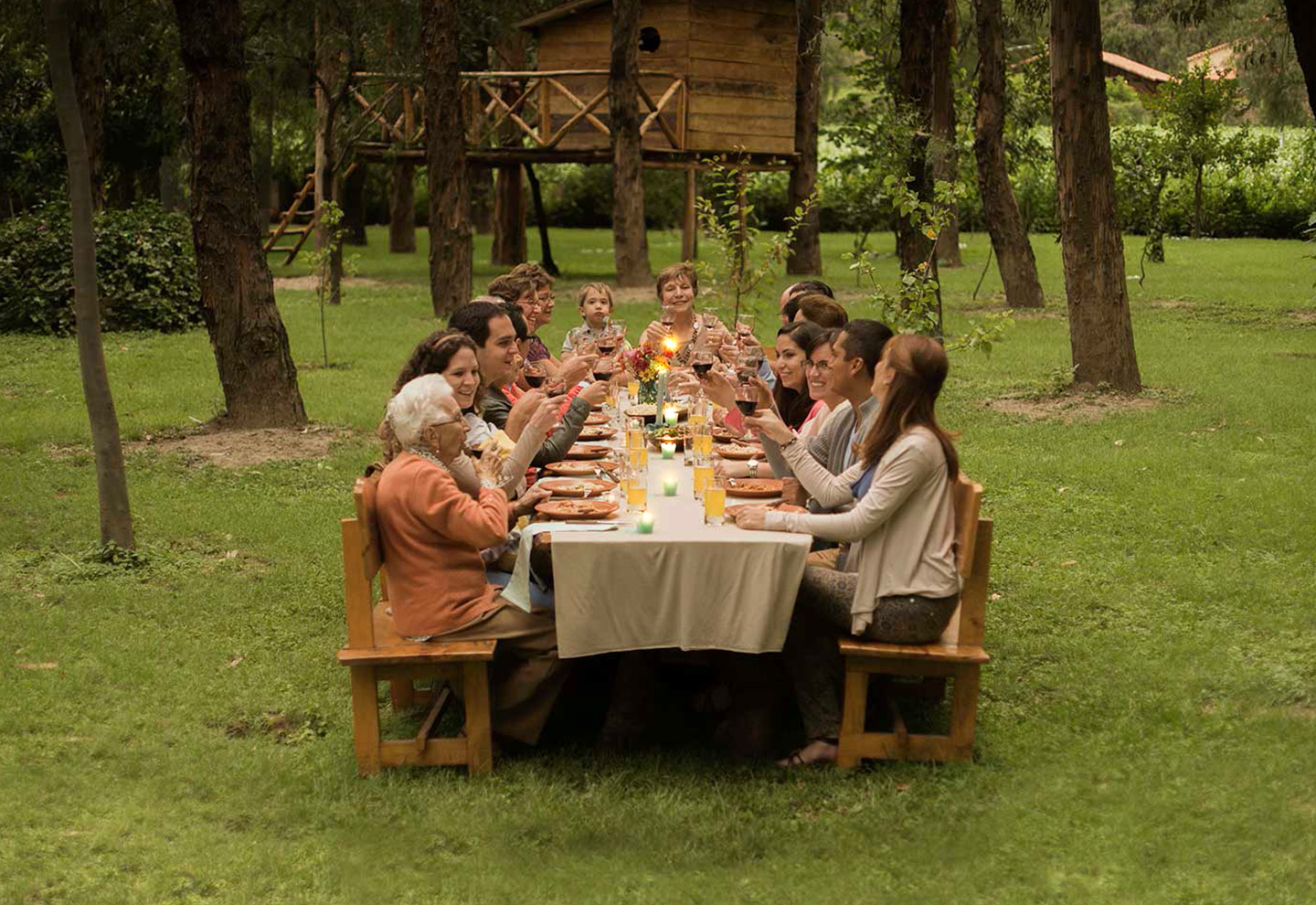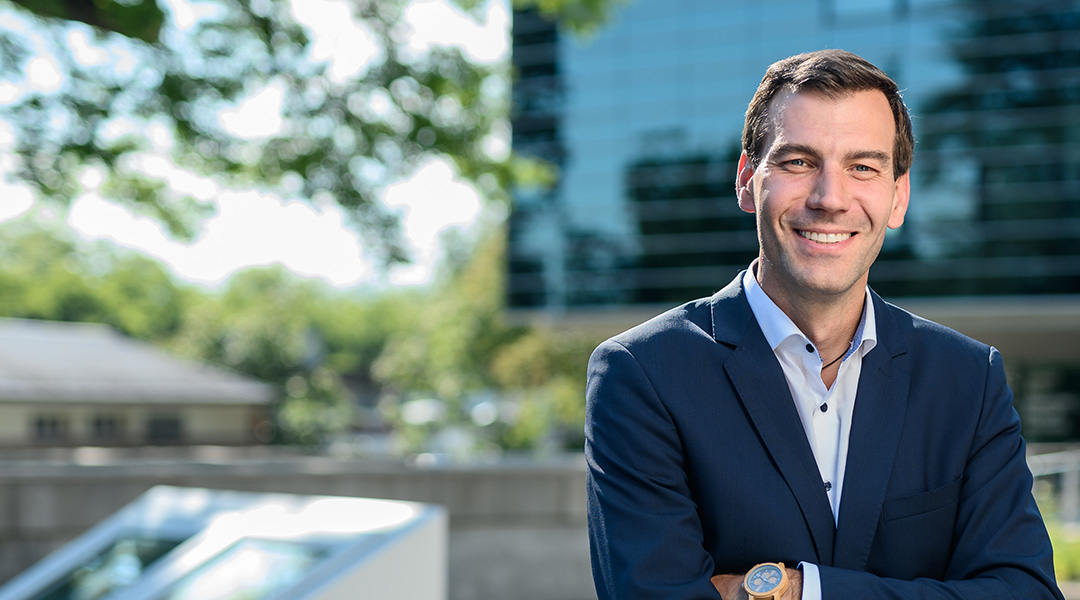At a glance
- Coronilla successfully transformed itself from being a local pasta manufacturer to a global health food player
- At the heart of the company’s successful pivot was a new purpose: to put social and environmental issues at the fore
- As a family business, a key to ensuring smooth successions to younger generations was to refresh and formalize governance processes
- Coronilla’s family owners put in place a unique and innovative model for issuing shares that allows a dynamic rebalancing of the share structure
Coronilla is one of the world’s premier producers of gluten-free pastas and snacks. It was a pioneer in using quinoa, a grain cultivated in the Andes mountains since the time of the Inca Empire, in health foods designed for people with gluten intolerance and celiac disease.
The road to success has been full of twists and turns for this South American family business, however. Coronilla underwent several transformations to survive the economic and political turbulence of its home country of Bolivia. Its most dramatic shift has been reinventing itself as a purpose-driven, Fair Trade producer that puts social and environmental issues at the heart of its endeavors.
The broader issue
There are both advantages and disadvantages to being a family business. On the plus side, family businesses are more likely to embrace a long-term vision of success. They are more financially conservative and therefore better able to weather the booms and busts of economic cycles. On the minus side, they must contend with the intricacies of three overlapping areas: family, business and ownership. They must also balance the harmony-seeking interests of the family with the market’s performance-based demands. For the founder, this is a simple matter since the entrepreneur makes all the decisions. However, as the second and third generations of the family take the reins of the business, a more sophisticated governance must be put in place. Families must engage in frank and open discussions over the fundamental values of the company if they wish to replicate and preserve its DNA for the future. Over time, we see a varied typology of shareholders emerge: some family members remain actively engaged in running the business, some are interested and involved shareholders, and some see it merely as a source of dividends.
In the case of Coronilla, the founder wished to produce something that would contribute directly to people’s health, and be widely accessible, which is why he created a pasta factory in 1972. The venture was a success for over two decades. Then, conditions in Bolivia’s food industry started deteriorating. The wider political and economic context also sank into chaos, with periods of hyperinflation. By the time the founder’s daughter took over running the business, Coronilla was in dire straits. But Marta Wille, as the new CEO, refused to remain hostage to the wildly fluctuating market conditions. Running a business amidst such turbulence was a nightmare. What were the options? She knew she needed to reinvent the company to ensure its survival. She also felt that Coronilla should rebuild itself around a new purpose: to create positive social and environmental impact. One of the main barriers was the family: Many family shareholders felt that the business should continue exactly as the Wille patriarch had established it.

After a period of experimentation, Marta found a creative solution based on authentic Andean ingredients: gluten-free pasta made with quinoa and cañawa grains. To procure these raw materials, she traveled to the Bolivian highlands to set up Fair Trade agreements with the indigenous farmers and invested the funds necessary to have them certified organic. She repurposed the factory to produce gluten-free foods. She then set up diversity initiatives to hire more women as well as handicapped staff. She also launched social and education-focused programs. To finance the transition, she opened up Coronilla’s capital to external investors.
From a social perspective, the bigger you are, the harder it is. All these social and environmental programs in Coronilla are not isolated – they’re not part of one business unit – they’re deeply embedded in the company. So the bigger we grow, the more challenging it is. And it’s easy to think: I’m just going to create a corporate social responsibility division and handle it as a different program, but that’s not what Coronilla is. And we need to keep it all together, otherwise it doesn’t make sense.
Diego Pelaez Wille | CEO
The successful reinvention of Coronilla required the hard work and sacrifice of several members of the family. Two of Marta’s children became heavily involved in the business: One daughter took on logistical and administrative responsibilities and one son abandoned his musical studies in Europe to come home and help manage the struggling company. The son – Diego Pelaez Wille – after many years as CFO of Coronilla, is now CEO. One of his main goals is to extend the legacy of social engagement and sustainability at Coronilla. A values-based company, in his view, offers a working climate that brings many intangible benefits such as loyalty, commitment and passion for the work. Since CSR is woven into every part of the firm, however, protecting the firm’s unique fabric of values while scaling up and expanding internationally is a real challenge.

Did it work?
After years of hardship as well as resistance from family shareholders, the radical transformation bore fruit. Coronilla grew to be a premier exporter of gluten-free pastas and snacks. Marta was also honored with the Schwab Foundation Prize for Social Entrepreneurship. Today, Coronilla faces new challenges as it expands its global reach and its leadership passes to the family’s third generation. But with a return on equity of 23% and a return on assets of 14.5%, the company is on solid footing. Furthermore, the Wille family has bought back the company shares ceded to outside investors, so Coronilla is once again wholly owned and run as a family business.
Takeaways
1-Reinvent the business but keep your core values. One reason for Coronilla’s continued success is that it has managed to reposition itself while conserving the DNA of the family business
2-Adopt forward-looking governance. In 2014, the Wille family decided that it needed to professionalize its governance. As many family businesses recognize when they usher in the third generation, formalizing certain processes improves decision-making and helps avoid conflict. With the aid of an external facilitator, the Wille shareholders created a “family protocol” outlining rules such as the maximum retirement age for the CEO, how to manage family rotations inside the company, and the process for hiring and firing family members working at Coronilla. The Willes also resolved that key decisions would be handled by the board of directors, which is mostly made up of independent, non-family directors.
3-Find creative solutions to balance shareholder preferences. With success came a new challenge for Coronilla: managing its shareholders. For years, the family was simply relieved that the business was surviving. But as Coronilla became prosperous in its new incarnation as an international health food player, the family shareholders became impatient to see dividends. Many of the family owners wanted the company’s yearly profits to be distributed in their entirety.
In contrast, Coronilla’s executive team wanted capital to grow the business. There was no easy solution, and shareholder meetings were becoming more and more heated as a result. As a way out of this impasse, the CFO and CEO devised a creative system for issuing shares. Coronilla would issue fresh shares every year, based on the CEO’s equity targets. Family shareholders who wished to cash out could do so, while those who wished to reinvest in the company could buy the newly issued shares at book value. If there was not enough interest among the owners to reinvest their dividends into equity, the CEO was authorized to invite external investors to buy the new shares. Over time, this system would lead to a dynamic rebalancing of the shares. Those who reinvested would become more prominent shareholders and those who chose not to would be slowly diluted. And since there were enough volunteers – for the time being – to pick up the shares, Coronilla could stay in the family’s hands. It was an original solution to the problem of diverging shareholder preferences.
This article is based on IMD case: IMD-7-1868, available from the case centre at www.thecasecentre.org.
Research Information & Knowledge Hub for additional information on IMD publications
Research Information & Knowledge Hub for additional information on IMD publications









